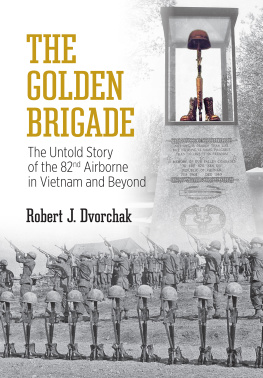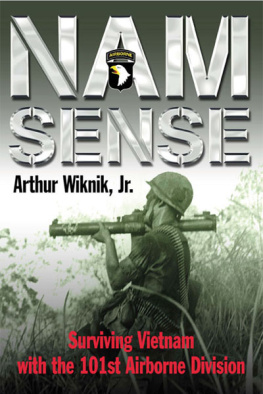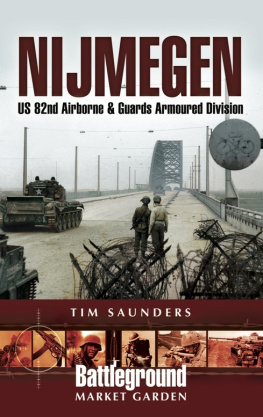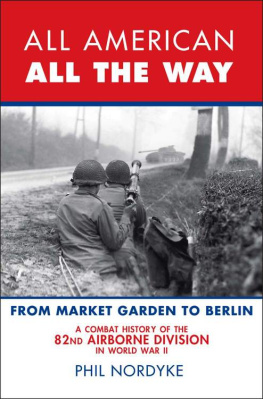Phil Gioia served two combat tours in Vietnam between 1968 and 1970 and was awarded two Silver Stars, a Bronze Star with V device, and two Purple Hearts. A graduate of the Virginia Military Institute, he went on to earn a masters in Foreign Service from Georgetown and an MBA from Stanford. He has lectured at West Point and Annapolis, published articles in the Journal of Military History, World War II, and Armchair General, and appeared in History Channel programs and in Ken Burns Vietnam War documentary. He lives in Corte Madera, California.
DREAM
For years after I came home from the war in 1970, the only dream I had of Vietnam was not of fighting or jungles at all. I still have it, though not as frequently as in the past.
It is always the same. It takes place not in the 1960s but in the present, and it begins in normal circumstances.
It starts on an ordinary day, a pleasant day from the looks of the sun and trees outside the window. Im working in my study. I receive a phone call. On the other end is a voice I remember well from years ago, a particularly irritating major in the Infantry Officer Assignments Branch, Officer Personnel Directorate, at Headquarters, Department of the Army, in Washington, DC.
Assignment officers were known to all Infantry captains during Vietnam as being from OPO, or Branch. They held immense power over our lives. From them issued orders that would direct us to our next assignments. They could spell the difference between life and death, success or failure in a military career.
In the dream, Im aware the war in Vietnam isnt over; its very much still being fought. I know Im no longer an active-duty Army officer and have no obligation to serve. I know, in short, that I dont have to listen to this guy from Branch at all.
But I do.
The major affirms that the war isnt going well. He tells me theyre reaching out to the old hands, asking us to go back. Well be setting an example, adding some steel, as he terms it, to the younger officers fighting in-country.
I listen patiently as he addresses me as stud and tiger. He tells me my record shows that I was a hard charger.
This is so much bullshit, and we both know it. I dont want to go back to Vietnam, I finally spit out, my voice grating. Ive done my part. Get someone else. Im not eligible, and you know it.
Youre absolutely right, absolutely right, he replies, emphasizing the second absolutely. But weve been in touch with a number of people you know. Theyve all gone back, and theyre asking for you. Yes, asking for you. So what do you say?
I ask him whos gone back. He names them. Good men; I knew them in jump school and Ranger at Benning, served with a couple in the 82nd at Bragg and in the 1st Air Cavalry. The kind youd trust your life to, or your wife and kids, if you had to be away.
Thats the hook, of course: the guilt. And very skillfully played. So Im thinking, if theyve gone back, who am I to complain? All right, I finally say, Ill go.
Thats when the dream switches to reality, and the door opens into the past. Its when I remember that all of them were killed in action long, long ago, in Vietnam.
EPILOGUE
For my combat service in Vietnam, I received the Silver Star for Gallantry in Action, with Oak Leaf Cluster; the Bronze Star with a V device for Valor; the Purple Heart Medal with Oak Leaf Cluster for wounds; and the Vietnamese Cross of Gallantry with Palm. Each Oak Leaf Cluster represents the second award of the same decoration.
In 1970, I was sent to the Advanced Course at the Armor Center at Fort Knox, graduating a cross-trained tank-infantry combined arms officer. I received a secondary Armor officer MOS 1203, unique among my Infantry colleagues. I also received a Prefix 5 to my primary MOS of 1543, infantry unit leader, qualifying me as a nuclear weapons target analyst. Im grateful I never had to use it.
In 1971 I freed a woman trapped in a burning car in Washington, DC, for which I received the Soldiers Medal for saving human life while not in combat. General Westmoreland pinned it on me at the Pentagon, the only occasion I met him.
On active service, I completed a masters degree in the Graduate School of Foreign Service at Georgetown. There were opportunities to meet some of the diplomatic fields greats. One Friday evening at a reception I asked a seasoned diplomat for any pointers I should keep in mind. Certainly, he said, deftly snagging a canap from a circulating tray. Cultivate projecting the impression that you are intensely interested in what the other person is saying. Be able to stand on your feet for hours while drinking like a fish. Forget everything youve heard but the critical bits.
The Army was severely damaged in Vietnam. I could understand how the French Army was affected after its Indochina experience. In April 1975, I drove across the country to a new assignment in San Francisco. South Vietnam was being overrun by the Norths army, with tanks and heavy artillery. Saigon was falling; intermittent reports on the car radio came from scratchy AM stations at Grand Island, North Platte, and Cheyenne, with long silent voids between.
Arriving at Presidio of San Francisco, I assisted in a huge building filled with pallets on which were Vietnamese orphan infants, rescued as Saigon fell and flown to the United States. Surreal.
Two years later I applied and was accepted to the Graduate School of Business at Stanford. At the same time, I was informed by the Army that I had made the early-selection list for promotion to major.
Acceptance of the promotion to major carried an obligation of two additional years of active service. I called my assignments officer at Infantry Branch in Washington, DC, and passed the news about Stanford.
He replied that the Army was severely contracting after Vietnam; there would be little need for officers with MBAs. He said the Army was in the process of being built down, a term I have never heard anywhere else since.
At that time, in addition to being an Infantry officer, I was also a designated foreign area officer, or FAO. A parallel career-specialty track, FAO officers overseas assignments should be in their particular foreign areas. As a FAO, I could go to any Infantry assignment among the then thousands in Europe. I could also serve as a military attach in foreign postings or on joint Allied staffs.
I had passed the State Department language-fluency requirement in German. I held a masters degree with distinction from the Foreign Service School at Georgetown. My masters thesis at Georgetown was on mutual and balanced force reduction of tactical nuclear weapons between US and Soviet forces in Europe. Known as MBFR, it was a topic of great interest at the time. My thesis was later included as one of the reference documents in the SALT I negotiations on strategic arms reductions between the United States and the Soviets.
In spite of these qualifications and career orientation, I was informed my next assignment would be to Korea. Following that conversation, I weighed the situation, decided I had done what I could for my country, and resigned my Army commission. Four days after my resignation date, I entered Stanford Business School.
The rest has been a life lived on rational terms, acceptable rules. To paraphrase Major Alvin of the Florida Ranger camp so long ago, in business, very few die, though the risks and pressures of business can be as wearing as, though very different from, those experienced in combat.
My experiences after Stanford of working at Goldman Sachs and Morgan Stanley were interesting and challenging. For decades afterward, I worked in technology, serving as CEO of two companies, and founding two more.
I cofounded a partnership that for ten years served as technology acquisition and assessment consultants for major clients in the US intelligence community. Our largest intelligence agency client described us in an internal report as the tip of the spear in sourcing mission-critical technological information for the intelligence warfighter.





